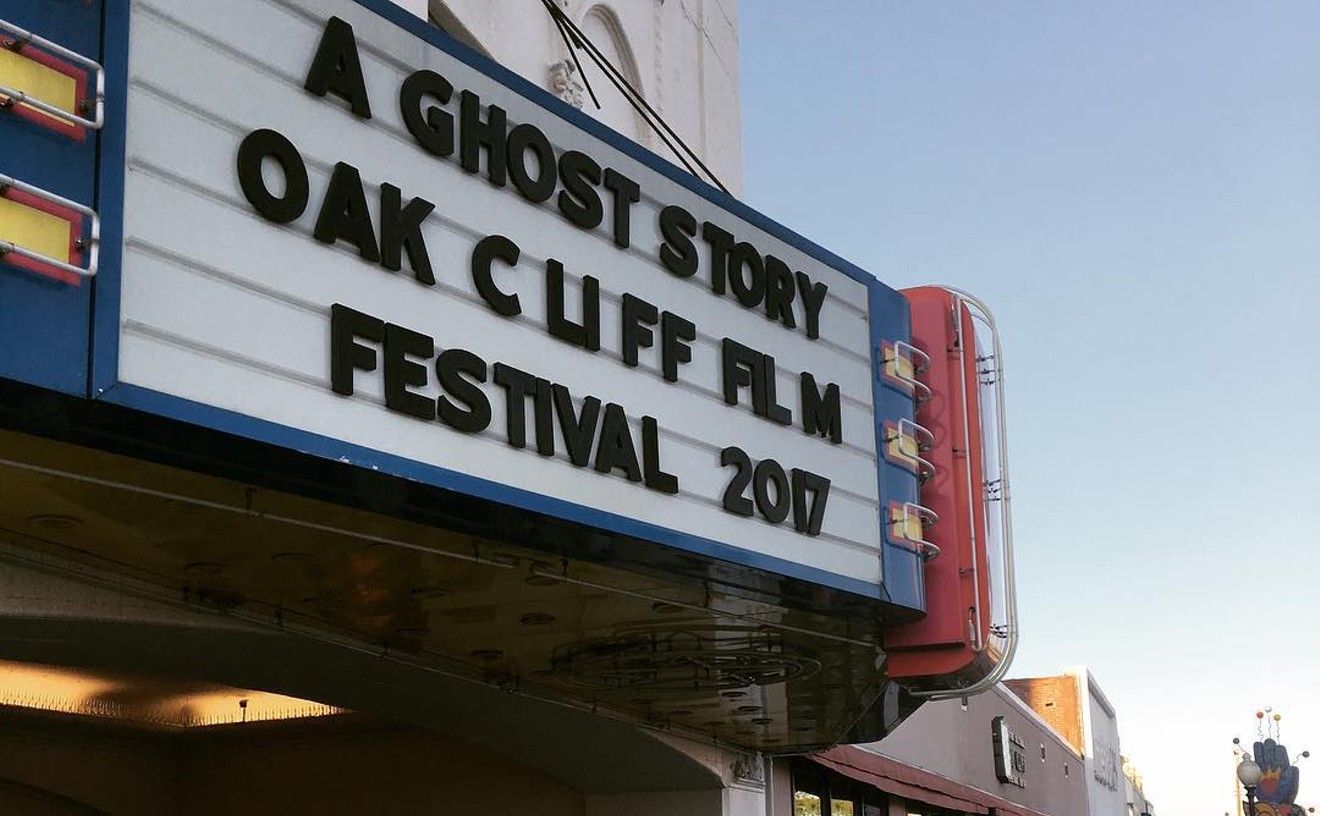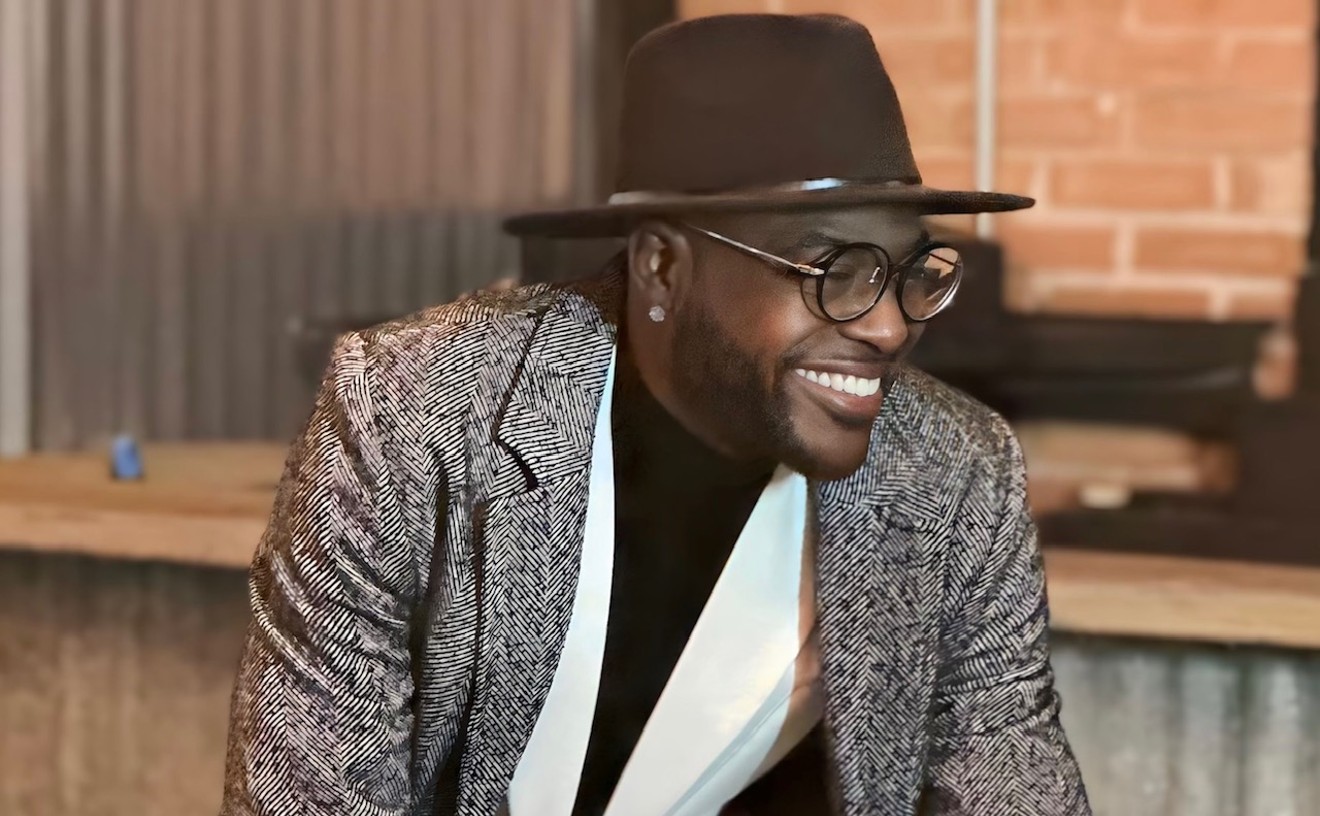The owners and workers in Anna's little cigar factory are small people with big dreams. Ofelia and her husband, Santiago (played by Karmin Murcelo and Apollo Dukakis), are in danger of losing their cigar business to his gambling losses. He believes the perfect 10-cent smoke will wipe out his debts and make them all rich. Their daughters are the virginal Marela (Adriana Gaviria) and the doe-eyed Conchita (Jacqueline Duprey), married to openly unfaithful, brooding Palomo (Timothy Paul Perez). Looming in the background is much-despised Cheché (Javi Mulero), Santiago's bastard son who dreams of firing all the workers and replacing them with machines. Day after steamy day, they sit at the long assembly table, cutting and hand-rolling fragrant Cuban tobacco leaves and listening to romantic literature read by the factory's hired "lector," the aristocratic Juan Julian (Al Espinosa).
There really were such men as Juan in Florida's cigar factories before the Depression (as there had been back in Cuba), paid for by the workers themselves. But by the 1930s, lectors had disappeared. It could have been radio or noisy new machines that drowned them out. Lectors also were seen as dangerous political influences on émigrés whom American factory owners preferred to keep illiterate and uninformed. As Cruz discovered in researching Tampa's Ybor City factories, lectors were regarded as romantic, elegant figures (at the beginning of the play, we find out Cheché's wife has run off with one). Juan Julian is written to be matinee-idol handsome (as is the actor playing him here). Dressed in a white linen suit, white Panama hat and brown and white spectators (the lovely period costumes are by Miguel Angel Huidor), he's what the old movie fan mags would dub a "dreamboat."
Juan reads Anna Karenina from the lector's perch. The employees get caught up in the tragic story and begin acting out Tolstoy's love scenes and intrigues for themselves. Marela gets a schoolgirl crush on Juan. But it's her older sister Conchita who rushes into his arms when they're finally alone together. He becomes her Cuban Count Vronsky. Act 1 ends with a seduction scene as hot as Tabasco.
Director Richard Hamburger keeps the passion at high simmer in Anna in the Tropics. The handsome cast, particularly Espinosa, a '91 SMU drama grad, and Duprey as his beloved, bring a haunted, feverish quality to their performances, leaving the audience at a preview performance at times afraid to breathe for fear of breaking the spell. The actors are careful not to overplay Cruz's dialogue, which can sound artificial. ("How does one read the story of your hair?" a lover asks.)
Scenic designer Christopher Barreca makes excellent use of the Kalita Humphreys Theater's revolving stage. Actors and furniture move at a dizzying pace through the two-hour performance. Through swirls of words and kisses, smoke and tears, everyone, including the chairs, seems always to be on the verge of running back to the forest.
Around this time every year, members of the Dallas-Fort Worth Theater Critics Forum get together over a lunch of fried chicken and coleslaw to decide which actors, directors, designers and playwrights deserve more recognition than just our rave reviews. For several hours, or until the chicken runs out, we thumb through programs and debate the merits of this one and that one as we pick award winners in eight categories. At this year's high-fat confab, the intensity of the arguments--think George and Martha from Who's Afraid of Virginia Woolf?--served as proof that 2003-'04 was an extraordinarily strong season at local theaters. In several cases, we went beyond the usual number of winners in a category because the work was just too good to leave anyone out. This year's honorees:
Best New Plays or Musicals:
Gauguin's Shadow by Fred Curchack (independently produced)
Up in Auntie's Attic (A Gentle Haunting) by Johnny Simons (Hip Pocket Theatre)
Best Touring Productions:
Big River (Dallas Summer Musicals)
Urinetown (Casa Mañana)
Best Acting Ensemble:
Closer (FireStarter Productions)
The Life (Uptown Players)
Best Actors:
Regan Adair, Killer Joe (Hellgrammite Productions in association with The MAC)
Akin Babatunde, Blind Lemon Blues (Documentary Arts)
Matthew Gray, for his season with the Classical Acting Company (Much Ado About Nothing, All My Sons and A Flea in Her Ear)
Mark Nutter, Lone Star (Contemporary Theatre of Dallas)
Joey Steakley, Hedwig and the Angry Inch (Kitchen Dog Theater)
Trey Walpole, Moon Over the Brewery (Circle Theatre)
Best Actresses:
Nicole Case, Steel Magnolias (Contemporary Theatre of Dallas)
Marisa Diotalevi, Laundry and Bourbon (Contemporary Theatre of Dallas)
Sheran Goodspeed-Keyton, Bessie Smith: Empress of the Blues (Jubilee Theatre)
Liz Mikel, Ain't Misbehavin' (Dallas Theater Center)
Allison Tolman, Anton in Show Business (Second Thought Theatre)
Lulu Ward, The Dining Room (Contemporary Theatre of Dallas)
Best Direction:
Richard Hamburger, Accidental Death of an Anarchist (Dallas Theater Center)
Tom Kosis, Flower Drum Song (Dallas Summer Musicals)
Greg Leaming, A Flea in Her Ear (Classical Acting Company)
Rene Moreno, Marriage Play (WingSpan Theatre Company) and All My Sons (Classical Acting Company)
Raphael Parry, Killer Joe (Hellgrammite Productions in association with The MAC)
Jerry Russell, Jacques Brel Is Alive and Well and Living in Paris (Stage West)
Best Design, Team and Individual:
The design team for Dainty Shapes and Hairy Apes, or The Green Pill (Our Endeavors Theatre Collective): lighting by Tristan Decker; set by Russell Parkman; costumes by Patrick Johnson; makeup and hair by Ryan Matthieu Smith; puppets by David Goodwin; sound by John Flores; fight choreography by Gary Minyard; and properties by Marielle Boneau.
The design team for Killer Joe (Hellgrammite Productions in association with The MAC): set by Scott Osborne; costumes by Happy Yancey; lighting by Robert G. McVay; sound by Marco E. Salinas; audio/visuals by Dave Tenney; props by Judy Niven; and fight choreography by Gary Minyard.
Bill Bullard and Suzi Shankle, costume designs for Red Scare on Sunset (Uptown Players)
Zak Herring, set design for Frankenstein (Dallas Children's Theater)
Kevin Rigdon, lighting design for Topdog/Underdog (Dallas Theater Center)
Randel Wright, set designs for Lone Star/Laundry and Bourbon (Contemporary Theatre of Dallas) and Marriage Play (WingSpan Theatre Company)
Klara Zieglerova, set design for Hamlet (Dallas Theater Center)
Special Citations to:
WaterTower Theatre, for sponsoring the Out of the Loop Festival, which gives performance opportunities to new companies and new plays.
The Live Theatre League of Tarrant County, for their charitable and community work, and for setting a high standard of cooperation between league members.
Voting members in the DFW Theater Critics Forum, besides yours truly, are Nancy Churnin, Tom Sime and Lawson Taitte from The Dallas Morning News; Martha Heimberg, Dallas Weekly; Arnold Wayne Jones, Dallas Voice; and Mark Lowry and Perry Stewart of The Fort Worth Star-Telegram.










